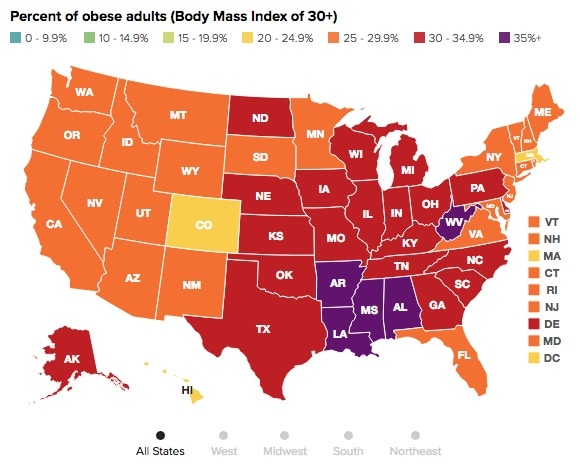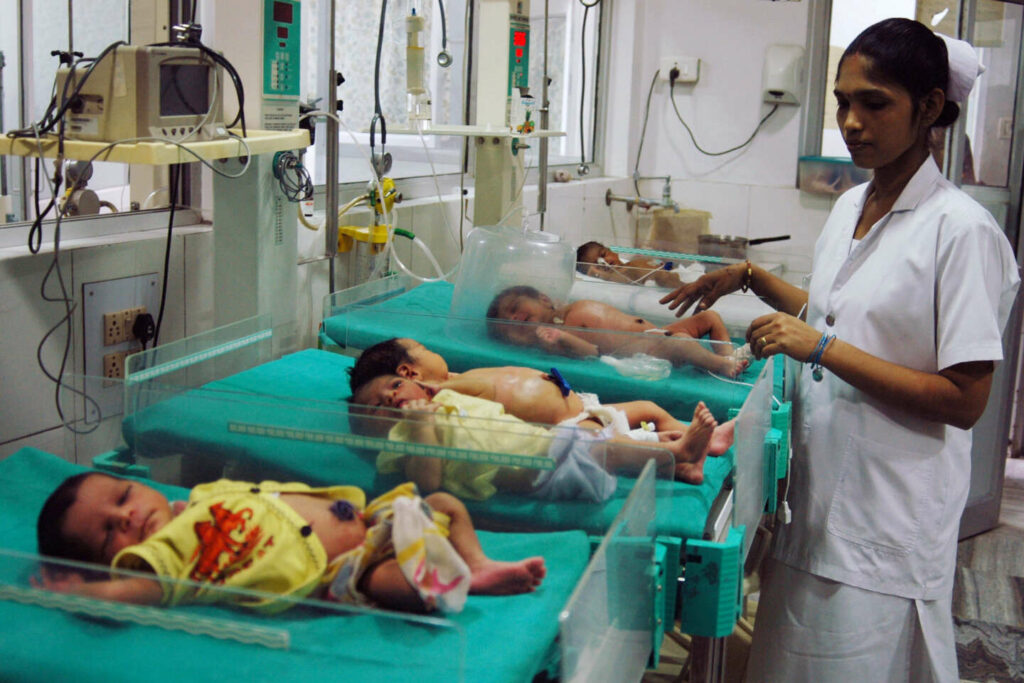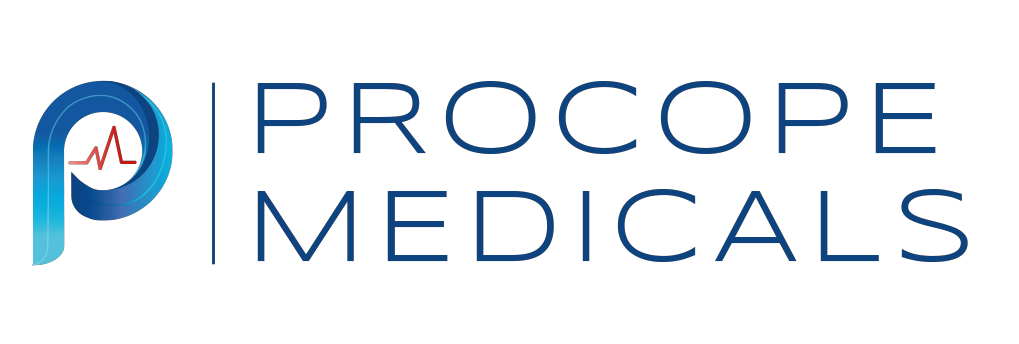Cardiovascular disease is one of the world’s leading causes of mortality. They encompass a range of disorders of the heart and blood vessels, including cerebrovascular disease. According to the World Health Organization, these diseases are responsible for 17.9 million deaths every year, or around 31% of all deaths worldwide. The main risk factors are hypertension, smoking, diabetes, obesity, poor diet, sedentary lifestyle and excessive alcohol consumption. It is important to understand their impact worldwide.

Focus on the United States
In 2019, nearly half of all Americans suffered from cardiovascular disease. Coronary heart disease, heart failure, high blood pressure… All these diseases affected 121.5 million adults. Several risk factors have been identified: hypertension, diabetes and obesity. Studies by the American Heart Association predict that 61% of adults in the United States will suffer from heart disease by 2050. Obesity, as the predominant risk factor, currently affects 43.1% of American adults, and could reach over 60% by 2050.
And the outlook doesn’t stop there: it also points to rising direct and indirect healthcare costs.
Focus on South Asia and West Africa
South Asia and West Africa also face the problem of cardiovascular disease, which has been on the increase for several years.
Indeed, in India, heart disease such as heart attacks is developing very rapidly, particularly among young people. This phenomenon can be explained by the population’s lifestyle, but also by a lack of awareness of preventive measures against the disease. In addition, research published in the journal Nature Genetics points to a mutation in the functioning of the myocardium. This mutation dramatically increases the risk of heart disease by a factor of 7. In response to this alarming finding, an event organized by The Heart Foundation brought together a number of world-renowned cardiologists and researchers to highlight heart health solutions. The aim is to mitigate this sudden increase in cases in India. With regard to the African continent, and West Africa in particular, the Regional Director of Novartis confides that the disease often affects a very young population. The prevalence of high blood pressure is 24%, which increases the risk of heart failure among the population, and the condition remains poorly diagnosed.


In the future, the fight against cardiovascular disease will require a coordinated effort, and research & development represents one of the first possible solutions to these ubiquitous diseases. Cardiovascular disease knows no borders, which is why this public health crisis underlines its global urgency.
Advances in medical technology play an important role in preventing, diagnosing and treating disease, countering it and offering hope to patients.
To prevent disease, practitioners recommend healthy lifestyle practices and raise public awareness of the need to modify our dietary and sporting habits. For the diagnosis and management of patients suffering from this disease, Indian surgeon M.K Das also highlights the emergence of artificial intelligence in hospitals. This emerging research and progress offers hope for patients, but access to care must be equitable and accessible to all to improve heart health.
Future prospects...
In response to this global need, Procope Medicals is working on an artificial heart project and is committed to investing in the research and development of innovative technology. We are working closely with the Nantes University Hospital to design a solution adapted to all morphologies, which reproduces the pulsatility of the natural heart. Thanks to an implantable battery and the use of transcutaneous cables, the risk of infection and complications is eliminated. Procope Medicals is determined to play a key role in this fight, working towards a future where these diseases are better treated and controlled.

Sources :
https://www.sudquotidien.sn/insuffisance-cardiaque-une-tueuse-en-progression/
https://www.20minutes.fr/monde/2441547-20190202-etats-unis-pres-moitie-americains-souffrent-maladies-cardiovasculaires#:~:text=ETUDE-,Etats-Unis%3A Près de la moitié des,Américains souffrent de maladies cardiovasculaires&text=Près de la moitié des Américains souffre de maladies cardiovasculaires,définition de l’hypertension artérielle.
https://www.lemonde.fr/planete/article/2009/01/20/en-inde-une-mutation-genetique-entraine-des-maladies-cardiaques_1144107_3244.html#:~:text=Planète-,En Inde%2C une mutation génétique entraîne des maladies cardiaques,surviennent 60 %25 des maladies cardiaques.&text=Lecture 2 min.,surviennent 60 %25 des maladies cardiaques.
